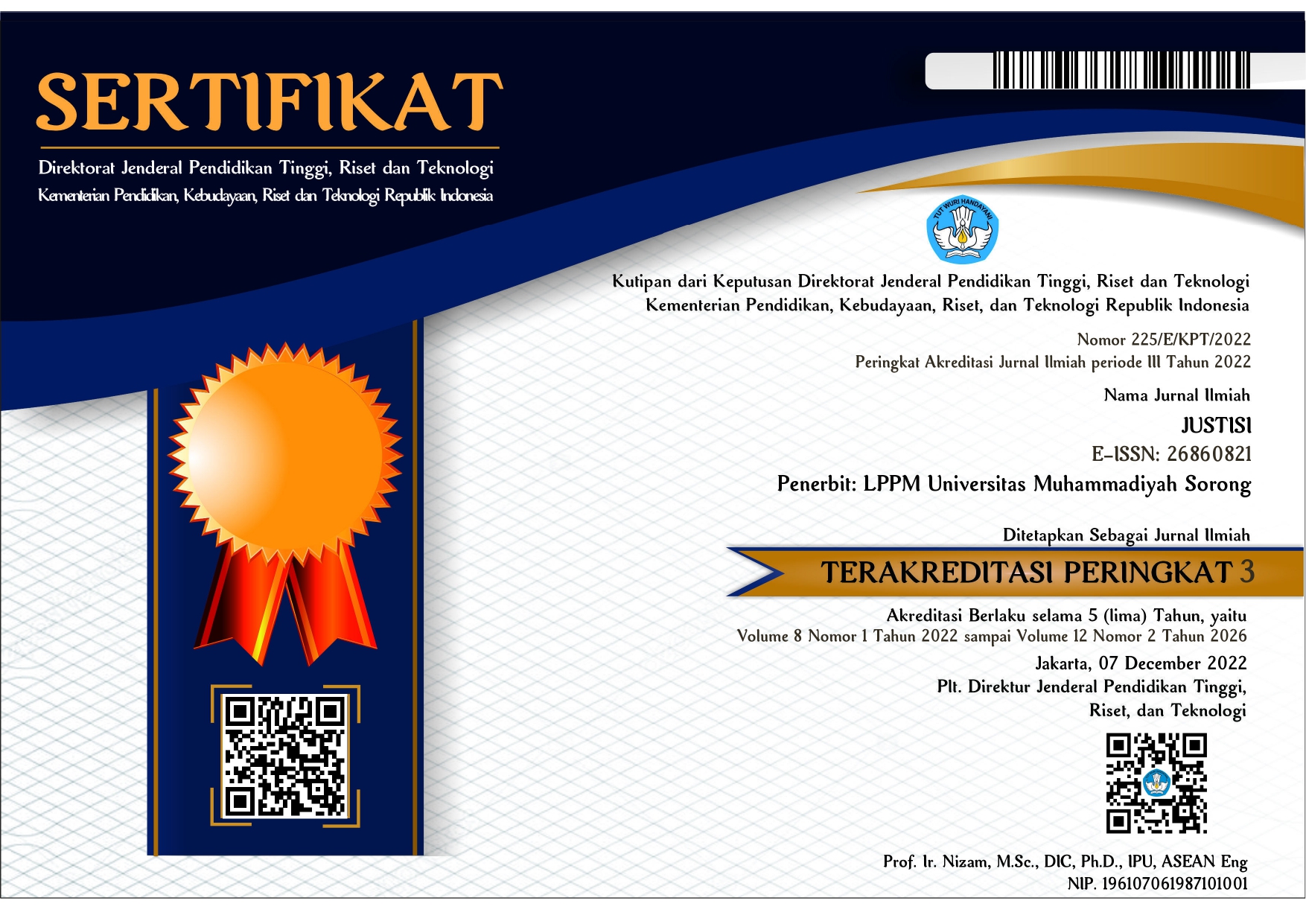Muhammadiyah Information Jurisprudence : A Guide Freedom of Expression in Maqoshid Sharia-Based Social Media
english
DOI:
https://doi.org/10.33506/jurnaljustisi.v9i2.2293Abstract
This study aims to find out the guidelines for freedom of expression on social media according to Muhammadiyah Information Fiqh and to know the limitations of freedom of expression on social media based on sharia maqosid in Muhammadiyah Information Fiqh. This research is a qualitative research in the form of library research. This research includes qualitative research which is research aimed at analyzing the research object holistically, descriptively without statistical analysis methods. The main object of this research is various basic principles or values in Muhammadiyah Information Jurisprudence. The research approach used is a philosophical approach (philosophy of Islamic law). Because as we all know, Indonesia adheres to a civil law system where on the principle of legality it states that the applicable law is only written law, while producing a written law takes quite a long time to be heard and promulgated. Therefore this study aims to explore legal formulations regarding freedom of expression in Indonesian legal regulations; to know the effectiveness of Muhammadiyah Information Fiqh accommodation in the concept of freedom of expression in Indonesia. The presence of Maqoshid Syariah is expected to be able to regulate freedom of expression behavior in accordance with the principles of Islamic law. This specificity is what makes freedom of expression must be regulated separately outside the realm of positive law.
To achieve this goal, research was carried out using normative methods with an Islamic legal philosophy approach, namely by exploring problems in social media, then identifying Muhammadiyah information fiqh and Islamic law canons based on maqasidu syari'ah. Finally, elaborating on Muhammadiyah information fiqh and Islamic law principles based on maqasidu syari'ah to answer as well as give direction in social media
The targeted output is the publication of articles in national journals, namely the Al Istinbath Journal indexed by Sinta 2 or 3. At the end of this research it is hoped to be able to create a model of applicable rules that can bridge the gap or gap between the speed of technological development and the speed at which the government issues regulations
Downloads
Published
How to Cite
Issue
Section
License
Copyright (c) 2023 Junaidi Junaidi, rizka

This work is licensed under a Creative Commons Attribution-ShareAlike 4.0 International License.










